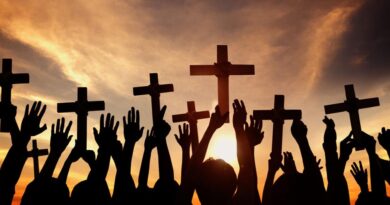Kenyan Church Leaders Oppose New Religion Laws
 Kenyan Church Leaders Oppose New Religion Laws
Kenyan Church Leaders Oppose New Religion Laws
Christian leaders in Kenya are voicing strong opposition to two proposed laws the Religious Organizations Bill and the Religious Organizations Policy saying they threaten the nation’s constitutional right to freedom of worship.
The Evangelical Association of Kenya (EAK) and the Church and Clergy Association of Kenya (CCAK) have both criticized the draft legislation, describing some of its provisions as unconstitutional and overreaching.
In a memorandum dated October 22, the EAK argued that the proposals would bring religious bodies under direct government control. “The bill introduces oversight mechanisms that treat religious organizations as if they were state departments,” the statement read, warning that the measures undermine the principle of separation between church and state.
ALSO READ: Cockroaches May Be Polluting the Air You Breathe
The Religious Organizations Bill, if enacted, would create an Advisory Board under the Office of the Attorney General and establish a Registrar of Religious Organizations responsible for issuing, suspending, or revoking registration certificates. The EAK called for a clear definition of the term “oversight”, warning that vague language could be used to restrict worship.
CCAK national chairperson Bishop Hudson Ndeda also questioned the bill’s intentions, saying its clauses appear discriminatory. He urged President William Ruto to give faith leaders time to review and provide input. “The mention of an umbrella body and commission is suspect and goes against our freedom of association,” Ndeda said.
The Federation of Evangelical and Indigenous Christian Churches in Kenya (FEICCK) joined the opposition, warning that the legislation could marginalize indigenous churches.
Supporters of the proposed laws argue they are necessary to curb religious extremism following the Shakahola tragedy, where over 500 people died in a cult-led massacre.
President Ruto, however, reassured Kenyans that his administration would not impose limits on religious freedom. “We will defend freedom of worship without compromise,” he said during a church service on October 6, adding that religious leaders should be part of defining how faith institutions are governed.
Content Credit: Moyosola Oni
Image Credit: Google .Com




